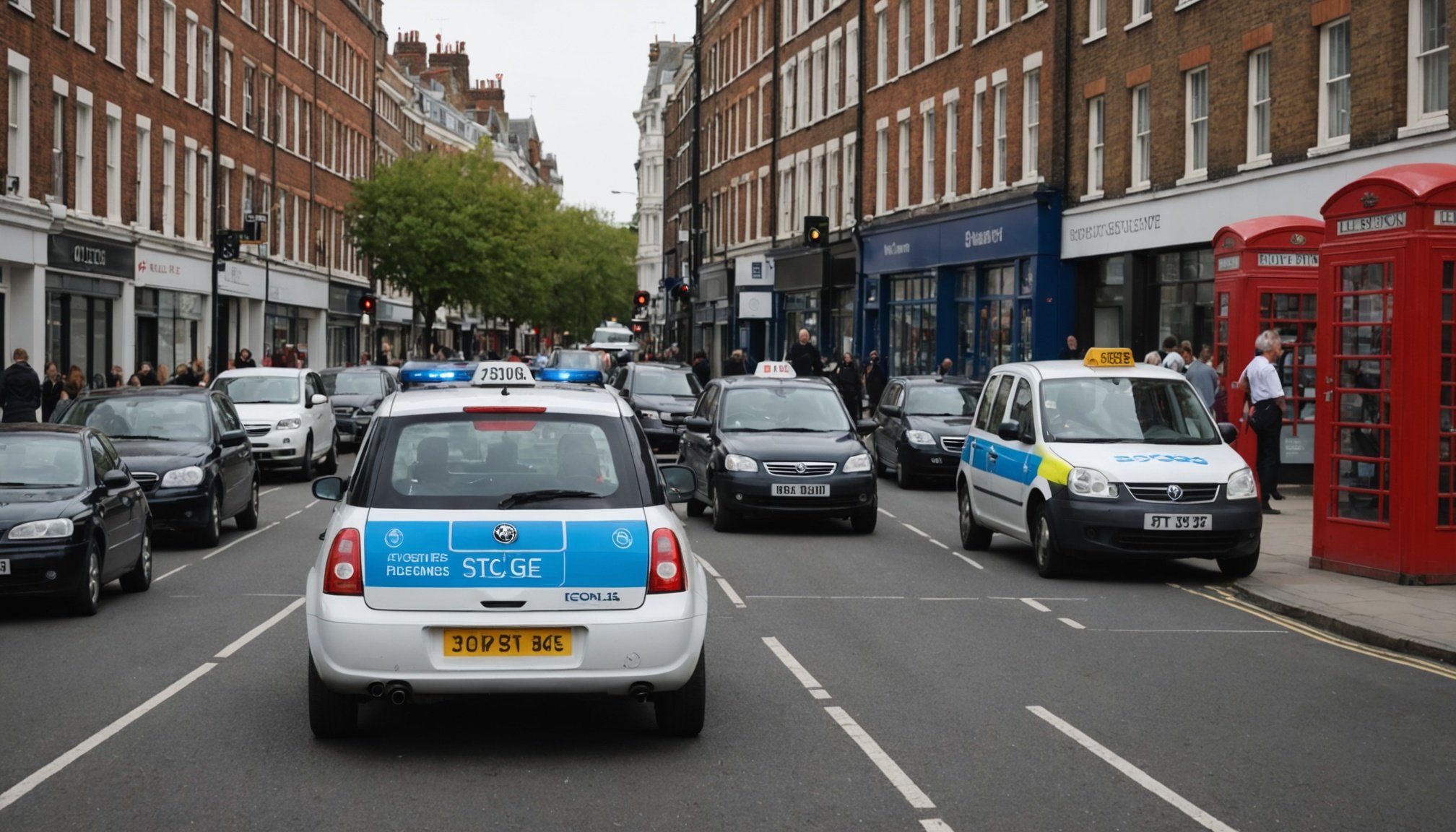Facing a speeding ticket in London's Low Emission Zone can be daunting. However, contesting this ticket is not just about a fine; it’s about understanding your rights and the unique challenges of urban driving regulations. Explore your options efficiently. From evidence gathering to appealing your case, this guide equips you with practical strategies. Empower yourself with knowledge, and navigate the complexities of contesting a ticket successfully.
Understanding London’s Low Emission Zone Regulations
The Low Emission Zone (LEZ) in London is a critical component of the city's environmental strategy, designed to reduce air pollution from traffic. This zone targets vehicles that do not meet specific emissions standards, encouraging the use of cleaner transport options. The purpose of the LEZ is to improve air quality, which is crucial for public health and the environment.
A découvrir également : Enhancing Digital Safety: UK Schools’ Innovative Cybersecurity Strategies in 2023
Within the LEZ, there are specific London regulations that dictate which vehicles can enter without incurring charges. These regulations focus on the emissions output of vehicles, primarily affecting diesel engines. Vehicles that do not comply with the set standards must pay a daily charge to drive within the zone.
Speed limits are also enforced rigorously within the LEZ to ensure safety and reduce emissions. Adhering to these limits is essential for maintaining traffic flow and minimising pollution.
A lire en complément : Step-by-Step Guide: Securing a UK Ancestry Visa for Commonwealth Citizens with British Roots
Violating the traffic rules of the LEZ can lead to significant consequences. Non-compliance can result in substantial fines, which are designed to deter repeated offences and encourage adherence to the regulations. Understanding and following these rules are vital for drivers to avoid penalties and contribute to a cleaner, healthier London.
Steps to Contest a Speeding Ticket
Contesting a speeding ticket within London's Low Emission Zone (LEZ) involves a structured appeal process. The first step is to thoroughly review the ticket details. Ensure that all information, such as the date, time, and location, is accurate. Any discrepancies can strengthen your ticket challenge.
Once you have verified the ticket details, gather evidence to support your case. This may include photographs of the area where the alleged infraction occurred, witness statements, or any relevant documentation that can demonstrate your compliance with the LEZ traffic rules. Evidence is crucial in the appeal process, as it provides tangible proof to contest the speeding ticket.
It's essential to be organised and methodical when preparing your case. Keep all documents and evidence in order, and make copies for your records. If you believe the ticket was issued in error, clearly outline your reasons and present your evidence coherently.
By following these steps, you can effectively navigate the process of contesting a speeding ticket, potentially avoiding fines and contributing to a fairer enforcement of the LEZ regulations. Remember, the goal is to ensure that all traffic rules are applied justly and accurately.
Legal Requirements for Contesting a Ticket
When contesting tickets in London's Low Emission Zone, understanding the legal requirements is crucial. The process is governed by specific applicable laws that dictate how and when a ticket can be challenged. These laws ensure that the contesting process is fair and transparent.
It's essential to be aware of the time limits for contesting a ticket. Typically, there is a set period within which you must submit your appeal. Missing this deadline can result in the automatic upholding of the ticket, so timely action is critical.
To build a strong case, gather all necessary documentation. This includes the original ticket, any correspondence with authorities, and evidence supporting your claim. Detailed documentation is vital for a successful appeal, as it provides a clear narrative of your compliance with the regulations.
In addition to these documents, familiarise yourself with the relevant laws that apply to your situation. Understanding these laws can help you identify any errors in the ticket issuance process, strengthening your case. By adhering to these legal requirements, you can effectively navigate the appeal process and increase your chances of a favourable outcome.
Potential Defenses Against a Speeding Ticket
When facing a speeding ticket within London's Low Emission Zone, it's essential to explore defenses against tickets to potentially invalidate the charge. Several speeding ticket defenses can be employed depending on the circumstances.
One common defense is questioning the accuracy of the speed measurement. If the device used was not properly calibrated or maintained, this could be grounds for dismissal. Additionally, if the signage was unclear or obscured, it might render the ticket invalid.
Another potential defense involves the necessity of speeding due to emergency situations. If you can demonstrate that speeding was unavoidable to prevent harm, this may be considered a valid legal argument.
It's crucial to present a robust argument when contesting a ticket. Gather evidence, such as photographs, witness statements, or maintenance records of speed detection devices, to support your claim. The strength of your defense often hinges on the quality and relevance of the evidence provided.
By understanding and utilising these legal arguments, you increase your chances of successfully contesting a speeding ticket. Always ensure that your defense is well-documented and clearly articulated to effectively challenge the ticket's validity.
The Appeal Process Explained
Navigating the appeal process for contesting speeding tickets in London's Low Emission Zone requires understanding each step. Initially, ensure your appeal is submitted within the designated timeline. This typically involves completing an appeal form and providing relevant documentation, such as the original ticket and any supporting evidence.
When preparing for the tribunal hearings, it is crucial to present your case clearly. The tribunal is an independent body that reviews appeals impartially. During the hearing, you will have the opportunity to explain your situation and present any evidence that supports your claim. Expect to answer specific questions about the circumstances surrounding the alleged infraction.
To submit your appeal effectively, ensure all forms are filled out accurately and all evidence is well-organised. This might include photographs, witness statements, or maintenance records of speed detection devices. Clear and concise documentation strengthens your case, increasing the likelihood of a favourable outcome.
Understanding what to expect during tribunal hearings can alleviate anxiety and help you prepare. The hearings are typically informal, allowing you to communicate your points directly. By adhering to these guidelines, you enhance your chances of successfully contesting a speeding ticket.
Real-Life Examples of Successful Appeals
Exploring successful appeals offers valuable insights into contesting speeding tickets effectively. Real-life case studies demonstrate how individuals navigated the process and achieved favourable outcomes.
One notable example involves a driver who challenged their speeding ticket by questioning the accuracy of the speed detection device. They provided maintenance records showing the device was overdue for calibration. The tribunal accepted this evidence, resulting in the ticket being dismissed. This highlights the importance of scrutinising the equipment used in issuing tickets.
Another case study features a motorist who successfully argued that unclear signage led to their infraction. They presented photographs proving that the speed limit signs were obscured by foliage. The tribunal ruled in their favour, emphasising the need for clear and visible traffic signs.
Lessons learned from these speeding ticket examples include the necessity of gathering comprehensive evidence and understanding the specific circumstances of each case. Strategies that proved effective involved meticulous documentation and presenting a coherent narrative that aligns with legal requirements.
These case studies underscore the importance of thorough preparation and attention to detail when contesting a ticket. By learning from these examples, individuals can better equip themselves to handle similar situations.
Additional Resources and Support
When contesting tickets in London's Low Emission Zone, having access to resources for contesting tickets is invaluable. The first step is to consult official websites such as Transport for London (TfL), which offer comprehensive guidelines and up-to-date information on the appeal process. These platforms provide essential details on submission deadlines, necessary documentation, and procedural steps.
For those seeking legal support, several organisations specialise in offering advice and representation. Legal aid services and independent solicitors can provide tailored guidance, ensuring you understand your rights and options. It's worth considering these resources if you're unfamiliar with legal procedures or require assistance in building a strong case.
Additionally, many online platforms host FAQs addressing common concerns and queries related to contesting tickets. These resources can clarify doubts about the process, such as what constitutes valid evidence or how to prepare for tribunal hearings. Understanding these frequently asked questions can significantly enhance your ability to effectively contest a ticket.
By utilising these resources and support systems, you can navigate the ticket contesting process with greater confidence and efficiency, ensuring you are well-prepared to present your case.











